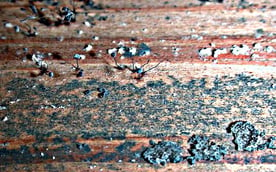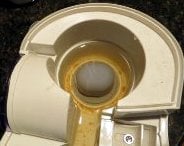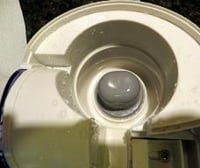
(Raised Mold On Wood)
There are so many myths out there regarding Mold. If you Google “Does Mold Cause Cancer” you will get many different answers. Let’s see if we can find the truth.
The best and only place that you should ever visit on the web regarding mold are government sites, such as the CDC, EPA or state sites. Many states have no standards regarding mold and Mold Inspectors and Remediators do not have to be licensed. New York is one of the only states at this point that Mold Inspectors and Remediators have to be licensed and this began starting this January (2016).
Examples of Government websites.
This website details many different issues that arise regarding mold.
Good information on keeping a home mold free.
The State of New York
http://www.nyc.gov/html/doh/html/environmental/mold.shtml
Can Mold really make you sick?
No and yes, not all molds cause illnesses or even cause cancer. There are thousands and thousands of types of mold and mold spores that are alive in every area of our living space. This means both inside and outside there are some levels of mold. The most important part of understanding mold is finding where the moisture problem is – take care of the moisture problem first, then address the mold. With that being said, if mold is present and there is belief that this is causing some sort of illness, testing for types of mold and mold spores would be a good idea. In the event that you have certain types of mold spores a remediation would be necessary. For example, if there is Aspergillus spores, there is a possibility of illness in those with weakened Immune systems. (https://www.nlm.nih.gov/medlineplus/ency/article/001326.htm). That is just one example of types of spores that have possibility of causing illness.
Remember – always double check your information. The internet is not always correct. Double check the information and again make sure that these sites you receive your information are government websites.
For more information on Types of Mold click here.
Questions about Mold? Please call us at 888-301-1050 or fill out the form below. Thank you.





